The Catalyst Killing - [38]
I explained that some unexpected information had cropped up, and asked whether he was certain that he had not heard or seen anything to indicate that there was a new man in his daughter’s life in the past couple of years. He repeated that he had had more or less no contact with her during that period, or with anyone else in her immediate circle. He could thus not rule out that there was a new man in her life; but he had not heard or seen anything to indicate this, and if it was the case, he had no idea who it might be.
There was a moment’s silence. Then he asked, understandably enough, what sort of unexpected information had led to this rather surprising question.
I could not very well lie to a man who had lost his only child no more than a few days ago. So I told him the truth: that the autopsy had shown that his daughter was pregnant when she was murdered.
His reaction was instant and unexpectedly passionate, given how calm and controlled he had been only hours after hearing of his daughter’s death.
‘It can’t be true! Oh – the shame for the family!’ he almost bellowed into the receiver.
We were both silent with shock for a moment. He regained his composure with impressive speed.
‘Please excuse my outburst, but this on top of everything else only makes things worse for myself and the rest of the family. As you understand, I have no idea who the child’s father is. Are there are any more questions I can help you with? Otherwise, I really should be on my way to the office.’
I said that I had no further questions for the time being and apologized for disturbing him so early on a Saturday morning. He replied that he was grateful to be informed, but that he would be even more grateful if the news could remain strictly confidential. It would only add to the strain on himself and his siblings’ families if this got out, particularly if the newspapers started to speculate and ask questions about the case.
I told him that I unfortunately could not promise that I would be able to keep it out of the newspapers forever, but that I would do my utmost to keep it from becoming public knowledge.
Martin Morgenstierne’s thanks were polite and succinct.
Then we had nothing more to say to each other, and so ended the call.
I was left with my slice of dry toast and cup of lukewarm coffee – and the feeling that it had been a greater shock and blow to the conservative Martin Morgenstierne to learn that his daughter was pregnant than that she had been killed.
II
Sogn Halls of Residence came into view at twenty-seven minutes past eight. I had driven a little faster than I should have, in order not to be late.
It was a grey morning, the sky above the halls of residence was overcast and there was drizzle in the air. The students who had stayed there over summer had presumably gone home to their parents for the weekend, or were sleeping off the festivities of Friday night.
Much to my relief, Miriam Filtvedt Bentsen had done neither. She was standing there alone in the cool morning air, wearing a blue raincoat with no hood and holding a small string bag in one hand. I took it as a good sign that she was there early, and was not looking around for somewhere she could read.
She looked momentarily confused when I pulled up, but her face lit up when she recognized me.
As she got in, Miriam Filtvedt Bentsen remarked that she had been expecting a police car. I told her that I had taken a civilian car so I could drop her off at the office door that afternoon, and added that I was disappointed to see that she had not been reading while she waited.
She laughed her peculiar laugh and retorted that it would be unwise to let the books be damaged by the rain, and as they were borrowed from the university library, it would also show a lack of solidarity. She was almost triumphant when she produced a huge tome about English literature in the nineteenth century from her string bag, but, much to my relief, made no attempt to open it. Then we sped away from the Oslo drizzle, towards the mountains of Valdres and the two-year-old riddle of a disappearance.
III
I thought it safest to wait with any critical questions until we were well out of Oslo. So I started by asking my passenger to tell me a bit about herself. This proved to be the right approach. The next hour or so was filled with pleasant chat about her parents and brother in Lillehammer, more details about her life at the university and predictions of how the SPP might do in the coming election. The weather brightened as we started to climb the narrow road up towards Valdres.
The mood in the car was very jolly. But then, on a rather desolate stretch of road, I finally ‘thought’ of a little question that I had in fact been dreading asking for the past two hours. I asked as kindly as I could about a tiny and possibly irrelevant detail – that is, was the door to the bedroom where Kristine Larsen and Miriam Filtvedt Bentsen had slept still ajar in the morning, the day before Falko disappeared?
There was a resounding silence. For about thirty seconds, the only sound to be heard was the steady purring of the engine. The atmosphere felt all the more intense as we were passing through a desolate landscape. It suddenly felt as though we were the only two people in the world. Her voice was somewhat tense, though still controlled, when she finally broke the pregnant silence.
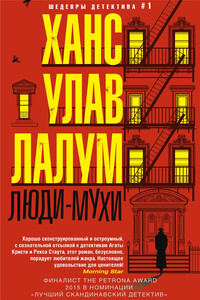
Убит бывший лидер норвежского Сопротивления и бывший член кабинета министров Харальд Олесен. Его тело обнаружено в запертой квартире, следов взлома нет, орудие убийства отсутствует. На звук выстрела к двери Олесена сбежались все соседи, но никого не увидели. Инспектор уголовного розыска Колбьёрн Кристиансен считает, что убийство, скорее всего, совершил кто-то из них. Более того, он полагает, что их показания лживы.
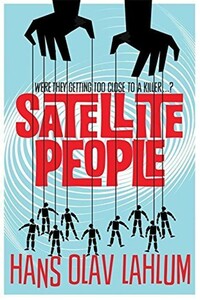
A gripping, evocative, and ingenious mystery which pays homage to Agatha Christie, Satellite People is the second Norwegian mystery in Hans Olav Lahlum's series. Oslo, 1969: When a wealthy man collapses and dies during a dinner party, Norwegian Police Inspector Kolbjorn Kristiansen, known as K2, is left shaken. For the victim, Magdalon Schelderup, a multimillionaire businessman and former resistance fighter, had contacted him only the day before, fearing for his life. It soon becomes clear that every one of Schelderup's 10 dinner guests is a suspect in the case.
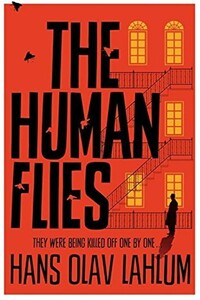
Oslo, 1968: ambitious young detective Inspector Kolbjorn Kristiansen is called to an apartment block, where a man has been found murdered. The victim, Harald Olesen, was a legendary hero of the Resistance during the Nazi occupation, and at first it is difficult to imagine who could have wanted him dead. But as Detective Inspector Kolbjorn Kristiansen (known as K2) begins to investigate, it seems clear that the murderer could only be one of Olesen's fellow tenants in the building. Soon, with the help of Patricia – a brilliant young woman confined to a wheelchair following a terrible accident – K2 will begin to untangle the web of lies surrounding Olesen's neighbors; each of whom, it seems, had their own reasons for wanting Olesen dead.
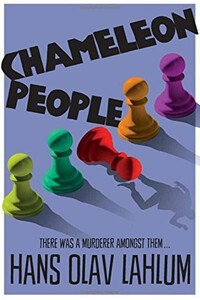
From the international bestselling author, Hans Olav Lahlum, comes Chameleon People, the fourth murder mystery in the K2 and Patricia series.1972. On a cold March morning the weekend peace is broken when a frantic young cyclist rings on Inspector Kolbjorn 'K2' Kristiansen's doorbell, desperate to speak to the detective.Compelled to help, K2 lets the boy inside, only to discover that he is being pursued by K2's colleagues in the Oslo police. A bloody knife is quickly found in the young man's pocket: a knife that matches the stab wounds of a politician murdered just a few streets away.The evidence seems clear-cut, and the arrest couldn't be easier.
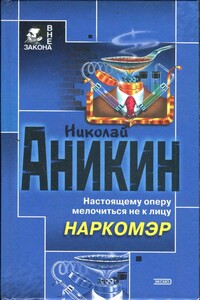
Тупик. Стена. Старый кирпич, обрывки паутины. А присмотреться — вроде следы вокруг. Может, отхожее место здесь, в глухом углу? Так нет, все чисто. Кто же сюда наведывается и зачем? И что охраняет тут охрана? Да вот эту стену и охраняет. Она, как выяснилось, с секретом: время от времени отъезжает в сторону. За ней цех. А в цеху производят под видом лекарства дурь. Полковник Кожемякин все это выведал. Но надо проникнуть внутрь и схватить за руку отравителей, наживающихся на здоровье собственного народа. А это будет потруднее…
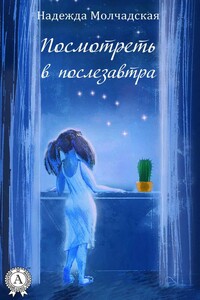
«Посмотреть в послезавтра» – остросюжетный роман-триллер Надежды Молчадской, главная изюминка которого – атмосфера таинственности и нарастающая интрига.Девушка по имени Венера впадает в кому при загадочных обстоятельствах. Спецслужбы переправляют ее из закрытого городка Нигдельск в Москву в спецклинику, где известный ученый пытается понять, что явилось причиной ее состояния. Его исследования приводят к неожиданным результатам: он обнаруживает, что их связывает тайна из его прошлого.
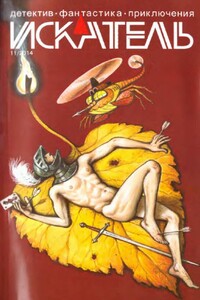
«ИСКАТЕЛЬ» — советский и российский литературный альманах. Издаётся с 1961 года. Публикует фантастические, приключенческие, детективные, военно-патриотические произведения, научно-популярные очерки и статьи. В 1961–1996 годах — литературное приложение к журналу «Вокруг света», с 1996 года — независимое издание.В 1961–1996 годах выходил шесть раз в год, в 1997–2002 годах — ежемесячно; с 2003 года выходит непериодически.Содержание:Анатолий Королев ПОЛИЦЕЙСКИЙ (повесть)Олег Быстров УКРАДИ МОЮ ЖИЗНЬ (окончание) (повесть)Владимир Лебедев ГОСТИ ИЗ НИОТКУДА.
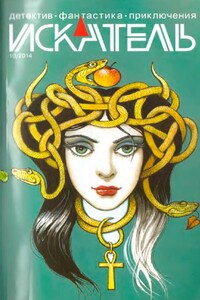
«ИСКАТЕЛЬ» — советский и российский литературный альманах. Издается с 1961 года. Публикует фантастические, приключенческие, детективные, военно-патриотические произведения, научно-популярные очерки и статьи. В 1961–1996 годах — литературное приложение к журналу «Вокруг света», с 1996 года — независимое издание.В 1961–1996 годах выходил шесть раз в год, в 1997–2002 годах — ежемесячно; с 2003 года выходит непериодически.Содержание:Олег Быстров УКРАДИ МОЮ ЖИЗНЬ (повесть);Петр Любестовский КЛЕТКА ДЛЯ НУТРИИ (повесть)
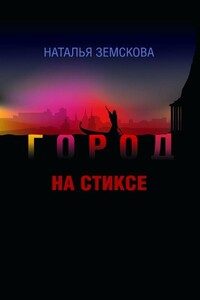
Наталья Земскова — журналист, театральный критик. В 2010 г. в издательстве «Астрель» (Санкт-Петербург) вышел её роман «Детородный возраст», который выдержал несколько переизданий. Остросюжетный роман «Город на Стиксе» — вторая книга писательницы. Молодая героиня, мечтает выйти замуж и уехать из забитого новостройками областного центра. Но вот у неё на глазах оживают тайны и легенды большого губернского города в центре России, судьбы талантливых людей, живущих рядом с нею. Роман «Город на Стиксе» — о выборе художника — провинция или столица? О том, чем рано или поздно приходится расплачиваться современному человеку, не верящему ни в Бога, ни в черта, а только в свой дар — за каждый неверный шаг.
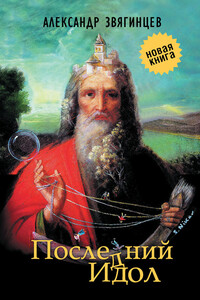
В сборник «Последний идол» вошли произведения Александра Звягинцева разных лет и разных жанров. Они объединены общей темой исторической памяти и личной ответственности человека в схватке со злом, которое порой предстает в самых неожиданных обличиях. Публикуются рассказы из циклов о делах следователей Багринцева и Северина, прокуроров Ольгина и Шип — уже известных читателям по сборнику Звягинцева «Кто-то из вас должен умереть!» (2012). Впервые увидит свет пьеса «Последний идол», а также цикл очерков писателя о событиях вокруг значительных фигур общественной и политической жизни России XIX–XX веков — от Петра Столыпина до Солженицына, от Александра Керенского до Льва Шейнина.